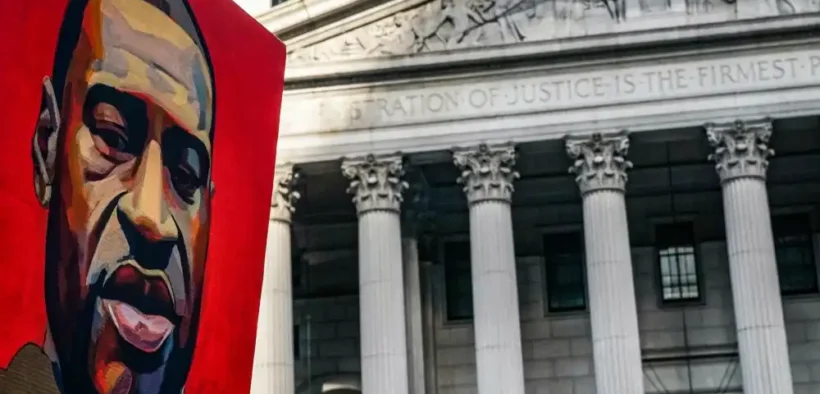US Poll Finds Fewer See Discrimination Against Black People
Share

A new nationwide poll suggests that American attitudes towards racial discrimination and workplace diversity are shifting, as fewer US adults now believe Black people face “a great deal” or “quite a bit” of discrimination.
The survey, conducted by the Associated Press-NORC Center for Public Affairs Research, found that 45% of adults feel Black Americans face significant discrimination, down from 60% in the spring of 2021, in the aftermath of the murder of George Floyd and the subsequent protests for racial justice.
Perceptions of discrimination against Asian Americans have also fallen, from 45% in 2021 to 32% now, while views about discrimination against Hispanic people and white people have remained largely unchanged.
The findings come at a time when many major US companies are scaling back diversity, equity and inclusion (DEI) initiatives, programmes designed to foster fairer workplaces and boost representation of marginalised groups.
These shifts have been fuelled in part by political pressure, with former President Donald Trump and other Republican figures criticising DEI and calling for restrictions on such policies in schools and businesses.
“It’s clear that the country has backtracked from its so-called racial reckoning,” said Phillipe Copeland, a professor at Boston University. “The experiences of particular groups such as Black people are being downplayed.”
Divided Views on Diversity Efforts
The poll also suggests Americans are deeply divided on the impact of DEI initiatives. While around four in ten believe such efforts reduce discrimination against Black people, women, and Hispanic and Asian Americans, a significant minority, up to a quarter, say DEI actually increases discrimination against these groups. About a third believe DEI makes no difference.
Among Black and Hispanic Americans, there is notable scepticism. Four in ten Black respondents and a third of Hispanic respondents said DEI measures have, in practice, made discrimination against their groups worse.
Claudine Brider, a Black woman in California, told the Associated Press that DEI can sometimes backfire. “Anytime they’re in a space that they’re not expected to be, like seeing a Black girl in an engineering course, they are seen as only getting there because of those factors,” she said. “It’s all negated by someone saying, ‘You’re only here to meet a quota.’”
No Quick Fixes
Despite growing unease about DEI, most Americans do not believe white people face significant discrimination—just 15% expressed that view, largely unchanged since 2021. However, 39% of white respondents said DEI initiatives actually increase discrimination against whites.
John Bartus, a 66-year-old Republican from Idaho, voiced a concern that DEI means “companies hire people based on their race or if they identify as LGBTQ+,” rather than merit. “The most qualified person ought to get a job based on their merit or based on their educational status,” he said.
Even as some question whether diversity programmes are working, many Americans see a continued need to tackle discrimination and ensure opportunity.
“I do think there needs to be something that ensures that there is a good cross-section of people in the workplace,” Ms Brider said. “I just don’t know what that would look like, to be honest.”
The poll of 1,437 adults was conducted July 10-14, 2025, and carries a margin of error of plus or minus 3.6 percentage points.




















